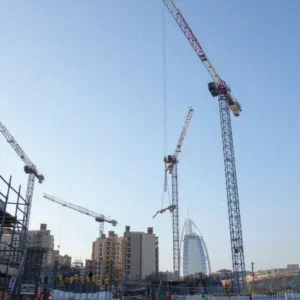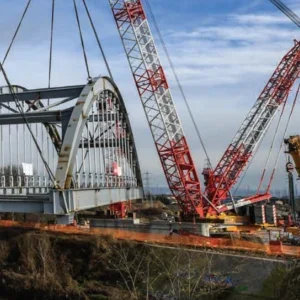Having grown over tenfold from its origins as an 8,000 sq m exhibition in 1995 this year’s M&T Expo is expecting a wealth of visitors and exhibitors from all over the world.
More than 60 countries were represented at the last event in 2009, with over 40,000 visitors in attendance at the show. As in other emerging markets, many manufacturers have set up operations in the country: Sany has a plant in Sao Paulo and Manitowoc one in Passo Fundo.
All of these companies will have a presence at the show, which Sobratema vice president Jonny Altstadt says has already run out of exhibitor space.
"It has sold out, with a line up of 20-30 companies waiting for space, because we sold out of parking."
With a massive crowd expected, the organisers are aware of the scale of the undertaking, and the strain it will exert on the City of Sao Paulo’s transport infrastructure. Sobratema has already arranged to link up all bus stations, subway stations and major transport hubs around the city with shuttle bus transport to the exhibition.
"We have some agencies that help us with people that are coming, and they are fully booked. They have had so many enquiries.
"We expect a lot of growth in visitors from Argentina, Chile and Peru because Brazilian construction companies are doing business there. They have helped us to take many delegations." The leading role of Brazilian construction companies in the region is one of the many draws of the show for exhibitors. It is also the largest of its kind for construction machinery in Latin America and therefore a good opportunity to get in front of a massive audience.
But one factor that is sure to be of much more immediate interest to exhibitors is the buying habits of the Brazilian attendees.
Altstadt explains: "It is curious, it is not usual in other countries, but the people, the Brazilians, they do not wait until they go, they will buy the machines during the show.
"At this moment what we expect, and what exhibitors find is really good, is that Brazilians buy machines at the show. People make a lot of business there. Some companies, Caterpillar and Liebherr, they have a fog horn which they honk because there is a competition between them with a noise for who makes more business. Every time that somebody sells a machine ‘honk honk’! It’s amazing."
Certainly, while large orders and sales at trade shows are not unheard of, the scale of this in Brazil, Altstadt says, is not something that is commonly seen anywhere else in the world. Visitors use the show as a chance for their last round of inspection of products and discussion before deciding on the spot.
Across the whole of Latin America, construction is booming. This is even more pronounced in Brazil thanks to the government’s PAC (Programa de Aceleração do Crescimento, or Growth Acceleration Programme) plan for development.
"We have a volume of investment from the government of BRL600bn up to 2015, then we will have BRL300bn in private investment over the same period," says Altstadt. "In Rio de Janeiro the backlog of investments for projects waiting to be built is up to BRL181bn."
This backlog speaks to the shortage in qualified, skilled labour in the country, blamed by some on years of underinvestment in education in Brazil. But with the economy going at full steam, a supply and demand mis-match was possibly inevitable at some point, although maybe not as pointedly so.
With the Olympics and World Cup events looming this will need to be addressed, but Altstadt is confident that the necessary construction work will be completed to ensure all timetabled goals are met.
"Everytime that you have a need and a political timetable, then you can accelerate the process, make whatever process easier. Because when the politicians invest in something they want to see results during their mandate."
With historically poor infrastructure for decades, even for global cities such as Rio De Janeiro, all across Brazil most are thankful that these problems finally being tackled. Favelas (slum housing) have all but dominated the hillsides of Rio de Janeiro for years, growing exponentially as time goes on, and encroaching on its national park.
Programmes to resettle the population of these favelas into newly built housing serviced by medical centres, schools and the proper infrastructure are long overdue.
For many in the world of construction M&T Expo 2012 will be a window into a world of boundless opportunity to drastically improve the quality of life for people in Brazil.
As a result Sobratema is optimistic about the outcome of the event, forecasting at least 30% growth in attendance.






